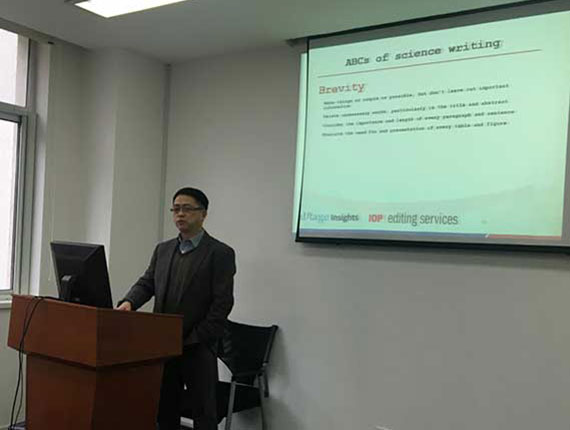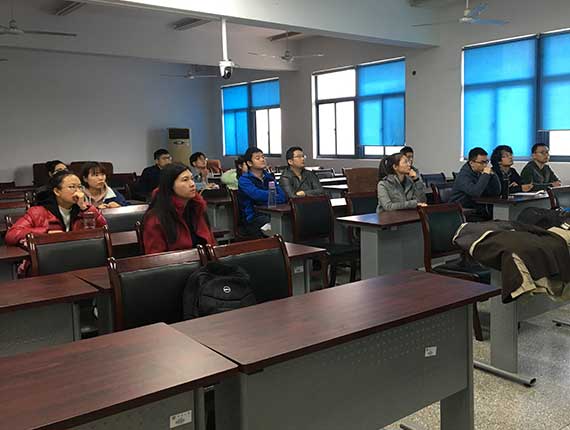English is the lingua franca for scholarly communication, and most international journals with a wide global readership are printed in English. Submitting manuscripts in poor English can put researchers at a disadvantage and delay the publication of research.
This webinar will highlight the importance of quality English writing and the need to communicate your research effectively. It will also focus on understanding journals and the types of manuscripts they publish, so that you can identify the best type of article for your study.
Listen nowResearchers and doctoral students who want to overcome the language barrier and communicate their science effectively in English can get valuable tips from David Kipler on improving manuscript language quality and presentation. After listening to this, you will submit confidently to international journals with a global readership.
Listen nowBoth beginners and intermediate level authors who find it difficult to respond professionally to reviewers’ comments will benefit from this session with Prof. Yang Gan, who tells you everything you need to know about manuscript revision. Avoid multiple rounds of revisions and even rejection, saving you months of time.
Listen nowIn this webinar, Prof. Yang Gan, covers the most common errors that authors, especially Chinese authors, make when writing and submitting research papers to international journals. He shares plenty of examples and quick tips on how to avoid critical errors that lead to rejection.
Listen nowThis webinar offers an in-depth introduction to writing effectively for academic publication purposes. It covers all aspects of writing an academic paper from the title to references from the perspective of editors.
Listen nowAs a researcher, you’ve been looking at your manuscript so long that it is very likely that you are missing the nuances of grammar and spelling. Need help in understanding how to improve the writing of your paper? Let’s take a look at how to improve the logic clarity and flow of paragraphs in a research report.
Listen nowAre you confused about when to write the abstract? Do you need help in understanding how to create an effective abstract? Let’s take a look at the steps you can follow. Also, you will learn about essential elements that would attract journal editors and readers.
Listen nowWhy is it important for your manuscript to be revised by a native English speaker? What are the five most common errors that non–English-speaking authors are likely to make when writing a paper? How can you can avoid making these mistakes? Learn everything you need to know about this in this webinar.
Listen nowMismatch with the scope of the target journal is one of the most common reasons for manuscript rejection. This can be frustrating, and result in delays in publication. Through this session, we will share some useful tips on how you can ensure that you select the right journal for your research manuscript.
Listen nowLearn to recognize and handle tackle the errors authors typically make when drafting their manuscripts and preparing for publication. Conducted by Editage in partnership with the Institute of Physics, this webinar gives you tips on how to avoid errors in writing different sections of a manuscript and increasing the chances of your manuscript being accepted by a journal.
Listen nowIn this workshop, researchers were coached to understand what the editors and reviewers value the most in science writing. The aim was to enable researchers to understand what the title should be, the word limit for abstracts, what to include in the introduction, when to add figures and tables, and other related aspects.


In this workshop, researchers were trained to structure their manuscripts effectively. Among the components of the workshop were the opinions of the reviewers and editors regarding the dos and don’ts of science writing, such as how to write an effective cover letter, writing styles for abstracts, introduction and discussion, among other things. The workshop also focussed on researcher responses to critiques.

